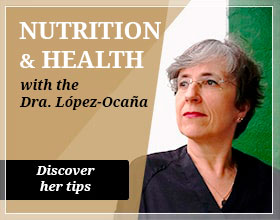Today we celebrate World Egg Day! A celebration that was established in 1996 in Vienna, to honor the relevance of this food in our diet, as well as the advantages and benefits it brings us.
Egg Day is celebrated on the second Friday in October, so it changes the date every year. In any case, it is clear that it deserves a day on the calendar, because there are few foods as versatile in the kitchen, as cheap and as nutritionally interesting as eggs.
Nutritional properties of the egg
The egg stands out for its contribution in proteins of high biological value (it provides us with all the essential amino acids, which are found mainly in the albumin present in the white). In addition, in fats such as lecithin and cholesterol (mainly in the yolk); vitamins such as A, B, E and vitamin D (in the yolk) and minerals such as iron and sulfur.
Curiosities and tips about the egg
- Shell color does not influence its nutritional characteristics.
- Raw eggs should never be eaten because of the risk of food poisoning by salmonella and because their nutrients are not properly absorbed,
- What about the egg and cholesterol?
Today, and despite different studies that exist, experts tell us that it is possible to eat an egg a day without having a negative impact on the increase in cholesterol and its relationship with the increase in cardiovascular diseases, due to the contribution of short-chain saturated fatty acids (not harmful or not so bad). This does not mean that we necessarily have to eat an egg a day, but we can.To have cholesterol in an adequate range (remember that this is essential for the proper functioning of all our cells, necessary for the production of certain hormones, including sexual hormones, and vitamin D, among others), correct dietary guidelines must be maintained, practicing regular physical activity, keeping stress under control, etc. In addition, within some guidelines, we must avoid or minimize the consumption of fried eggs.
- It is advisable to store the eggs on the shelves of the refrigerator, and not in the eggcup on the door, since they undergo constant temperature changes when opening and closing.
- Never wash them and if they are broken, they should be discarded (due to the danger of food contamination).
Understand the egg printed code
Eggs usually have a code printed that gives us several information:
- The first number informs how that hen was raised:
3: hens raised in cage. Little movement space for the hen.
2: hens raised on land with no access to the outside.
1: free-range hens. In this case, the hens do have access to the outside.
0: free-range hens fed with organic feed.In this case, there are no nutritional differences in the egg according to the way it is raised, but there is respect both with the animal and with the way of producing its food, so it would be advisable that we take eggs with the number 1 or 0. - Two Letters: indicate country of origin.
- The rest of the numbers: indicate the province, municipality and farm where the eggs come from.
Inexpensive, rich, versatile in the kitchen, healthy and wholesome, that’s him. Happy egg’s Day!








 Send us your recipe and win a fish preserved box
Send us your recipe and win a fish preserved box



